Choose the Right Air Filter for Your Home
If you’re not familiar with air filters, you are not alone. Though important, they are a frequently overlooked part of your HVAC system. Below, we’ve compiled some information about what air filters are, what they do for your home and how you can choose the right one.
What Do Air Filters Do?
The air filter in your household heating and cooling system helps keep the air in your home clean and free of dust and other nasty particles. Internal air quality in your home can vary greatly depending on a number of factors, such as the health of your home air system, pets, level of dust and weather conditions in your area. The right filter can save you money on electricity and improve the air quality in your home.
Different Types of Air Filters
Four types of filters are found frequently in home HVAC systems. The first is the fiberglass filter, which is layered to filter air and held in a metal frame. Polyester and pleated filters have the same basic design but tend to feature better dust-blocking capabilities than their fiberglass counterparts. High-efficiency particulate arrestance (HEPA) filters take out 99.7 percent of all particles. Washable filters are less common but don’t have to be replaced.
Filter Maintenance and Replacement
You should check your air filters once a month and have a professional look at them twice a year. If the filter is damp, dusty or moldy, it’s time for a new filter. But it could also mean that your current filter is not doing a good enough job for your system. Properly maintaining filters will help keep your system running cleanly, but if you aren’t using the right kind of filter, you may have to replace them more often. Using improper air filters can even cause damage to other parts of your system, such as heating coils and fans, if they are not collecting enough of the particles in the air.
Choosing the Right Filter
The type of filter you need depends on the size of your home, the length of use and the weather in your area. If you have a large family, pets or people with allergies in your home, you may need even stronger filters. A professional can tell you which filters are best-suited to your needs by taking a look at the condition of your central air system.
Why You Should Upgrade Filters
Indoor air quality affects your health and your comfort. Poor indoor air quality can be an environmental risk, compounding problems with allergies and respiratory illness. Hiring a professional to check out your air filters ensures that you have the right fit, which means you will have to replace filters less often and your home air system will last longer. Getting better filters will reduce pollutants in your air and save you money on electric bill through increased energy efficiency.
If you want to hire a pro to simplify the process, look no further than Cox Heating & Air Conditioning. We can help make your home cheaper to maintain, safer and more comfortable.
5 Tasks to Complete When Turning on the Heat This Winter
Now that winter is officially here in Florida, it’s time to consider your heating system. While you may not need to heat your home that often during our mild winters, it’s still a wise idea to ensure the system is in good working order.
Before turning on the heat this winter, even if you’ll only be using the system occasionally, perform a few simple maintenance tasks.
The following steps will help guarantee that your heater works well when you need it.
1. Check for Adequate Clearance
Many heating units are located in attics or garages where items may be temporarily stored without much thought during the summer months. Take a good look around the furnace or heat pump and make sure there isn’t anything obstructing airflow before turning on the heat.
During inspection, it’s also important to remove any potentially combustible items from the vicinity of the heater, such as paper products or chemicals like cleaning fluids.
2. Clean the Unit Exterior
Vacuum the heater and the surrounding area. Use a soft brush attachment and clean up any dust from accessible parts of the heater. In addition, vacuum around the heater so that once you turn the unit on the filter doesn’t absorb stray dirt and dust.
3. Replace or Clean the Air Filter
For optimum efficiency and to preserve the integrity of your HVAC system, make sure that your heater’s filter is free of debris and dust. Dust-free filters will ensure an even, fresh airflow.
If the furnace has a replaceable filter, it’s often best to exchange it with a new one before turning on the heat. Check the size on the current filter or the owner’s manual. If the filter is reusable, remove dust and debris buildup with a vacuum cleaner and then wash the filter out with soap and water. Rinse the filter well and let it dry thoroughly before reinstalling.
4. Test Your Carbon Monoxide Detectors
Now is an ideal time to ensure that all carbon monoxide detectors in your home are working properly. If they’re battery operated and it’s been a while since you changed the batteries, do so now. Once you run the heater, if the carbon monoxide detector ever goes off, immediately turn off your heater, open the windows and call an HVAC professional for an assessment.
5. Consider Getting a Preventative Maintenance Check
Many furnace manufacturers recommend getting your heating system checked and serviced once a year. The ideal time to have an HVAC professional inspect your system is before you need to turn it on. During the inspection, your heater will be checked for any leakage and blockage in the venting system. The technician will also ensure that the heater is igniting safely.
What is a SEER Rating, and Why Is It So Important?
If you’re a recent homeowner and are starting to furnish, insulate and create your ultimate dream home, you’re probably getting overwhelmed with the number of choices that need to be made. Few people know how much work goes into just maintaining a comfortable temperature within a house. If you’ve started looking at air conditioners or other HVAC systems, you have probably heard the term “SEER rating” tossed around.
For homeowners looking to better understand the metric, this article will act as a guide as to what a SEER rating is. It will also cover why it’s so important to homeowners who want to protect their home against the elements, protect the planet from global warming or protect their bank account against high energy costs.
All About SEER Ratings
SEER stands for Seasonal Energy Efficiency Ratio, and it measures the efficiency of an HVAC system. The SEER rating is the amount of cooling or heating a system emits per unit of energy used. This means when it comes to calculating a unit or home’s ranking, a higher numbered SEER Rating corresponds with a more energy efficient system. The higher the rating, the better a unit will be at keeping your home the temperature that you want it to be and the more economical it will be.
Why Is This Rating Important?
Homeowners looking to manage their energy costs, need look no further than the SEER rating to determine how much they could end up spending on energy, and how they can minimize their heating or cooling costs. It’s practical and valuable knowledge for homeowners who want to reduce their energy costs. Knowing that a more expensive unit initially may lead to lower maintenance costs down the road and increased energy efficiency can alter a homeowner’s purchasing plan. Consider the SEER Rating during your decision-making process if you’re thinking of installing a new air conditioner or HVAC unit.
Perhaps you’re a homeowner seeking to better understand some the heating and HVAC units that are available for your home. Or maybe your house will have unique needs and specifications. Don’t hesitate to contact Cox Heating & Air Conditioning today. After serving the Tampa Bay area for almost 60 years, Cox has the knowledge and expertise to help homeowners find what heating and cooling units are right for their budget and price points.
Find Out Why a Heat Pump May Be Right for You
With Florida’s milder winters, you may be wondering if a heat pump is the right choice for your home. In relatively moderate climates, heat pumps provide both cooling and warming capabilities, and can be a cost-efficient option for your family.
According to the U.S. Department of Energy, an air-source pump can deliver one-and-a-half to three times more heat energy to a home than the electrical energy it consumes, if it is installed properly by a reputable, highly trained service provider.
A heat pump can be a great option for keeping your Florida home warm during the winter. It’s important to choose the best system to keep your family comfortable and to work with a professional to ensure the system will work at its highest level.
How Heat Pumps Work
Using a compressor, coils and aluminum fins, heat pumps transfer heat, instead of generating it. They provide warmth using a liquid refrigerant to extract heat from the outside air, turning it into a gas. Indoor coils release heat from the refrigerant as it condenses back into a liquid.
Benefits of Heat Pumps
There are several reasons a heat pump could be the right option for your home, including:
- Improved air quality: Circulated air is purified, removing dust, smoke and mold.
- Dual usage: Not only will a heat pump keep your home warm, but it can be used in summer as well for cooling.
- Eco-friendly: Since heat pumps don’t burn at the source, there are no carbon emissions.
- Convenience: You can warm up your home fast, with just the touch of a button.
Long-Term Satisfaction with Your Heat Pump
First, be sure you’re working with a qualified, experienced HVAC professional when choosing to install a heat pump, because proper installation can reduce the likelihood of problems later. For example, fans and compressors emit a certain amount of noise, so you don’t want to install them right under a window. Mounting the unit on a noise-absorbing base can also keep things quiet. You also want to make sure your unit is protected from the wind to avoid defrosting problems with the coils. And if your area is prone to flooding, the outside unit may need to be installed on a raised platform.
Heat pumps are a rapidly growing source of energy, especially in Florida. According to the U.S. Energy Information Administration, more than 9 million households in the Southeast are using heat pumps, so it is important to work with a dedicated service provider who makes the process of buying and installing a system easy.
Mistakes to Avoid When Buying a New AC Unit
If your AC unit has died, now may be the best time to replace it. Before you start shopping for a new unit or buy the first air conditioner you find on sale, consider these common mistakes to avoid when buying a new AC unit.
1. Purchasing the Cheapest Unit
Buying an inexpensive air conditioner may not be in your best interests. When comparing prices, look for a reputable brand that is energy efficient and reliable. Even if the AC unit costs more initially, in the long run, it may offer you more value in the long run.
If you want to save money on your utility bills, the efficiency rating is crucial. According to Cox Heating & Air Conditioning, the most important aspect of choosing an HVAC system for your home is the Seasonal Energy Efficiency Rating or SEER.
In 2015, the U.S. Department of Energy created new regulations in which the SEER must meet varying requirements based on geographic climates. According to these guidelines, the SEER must be no less than 14 in the Southeast.1
2. Getting Only One Estimate
It’s important to get several estimates before choosing a new air conditioning unit. Always ask for written estimates. When requesting an estimate, be sure that a warranty is included in the product and services provided are clearly stated.
3. Declining the Maintenance Plan
Regularly scheduled maintenance is key when it comes to protecting your new air conditioner.
While you may be tempted to waive a maintenance plan, the professionals at Cox Heating & Air Conditioning caution it will cost you more to maintain your AC unit when expensive repair bills or labor charges add up.
Preventative maintenance may include replacement of parts that wear out periodically. Many maintenance plans also cover coolant, which will need to be refreshed, especially in hot climates. Investing in a preventative maintenance plan will help ensure the long-term efficiency of your air conditioner.
4. Buying the Wrong Size Unit
Before you purchase an air conditioning unit, consider the size of the space you are trying to cool. The efficiency and cooling capacity of each AC unit will vary depending on the unit’s size. If your AC unit is too large or too small for the space you are trying to cool, the unit’s efficiency will be compromised. And that initial mistake could lead to high energy bills, poor cooling and costly repairs for years to come. An experienced HVAC professional will be able to accurately calculate the size unit your space requires.
5. Hiring an Unqualified Contractor
Purchasing an AC unit is not just about the brand of the unit itself. You’re also banking on the contractor who installs it. Hiring an unqualified or inexperienced contractor can mean expensive repairs and problems down the road. Instead, search for experienced professionals. Ask your friends and family members for referrals, and be sure to read online reviews to make sure you’re selecting a professional with a record of excellent customer service.
Buying an AC unit doesn’t have to be a stressful experience. Spend time doing some research and your hard work will pay off when it comes to keeping your home cool and comfortable.
Carbon Monoxide Poisoning: 5 Ways to Prevent It
Carbon monoxide poisoning can happen more easily than you think. This colorless, odorless gas is impossible to detect without specialized equipment. As a result, hundreds of Americans per year die from carbon monoxide poisoning and tens of thousands visit hospital emergency departments. Installing carbon monoxide detectors is a good first step for home safety, but there’s plenty more you can do to protect yourself and your family.
Carbon Monoxide Detectors
Carbon monoxide detectors sound an alarm when levels of the gas become dangerously high, warning householders that it’s time to get out. Install a detector on each level of your home and in the hallway next to every sleeping area, or ask a professional contractor to do it for you. Check the batteries at least every six months, and if the alarm sounds, get everyone out of the house before calling the police or fire department. Use detectors only as one preventative strategy in your home.
Outdoor Fuel-Burning Appliances
Fuel-burning appliances for outdoor use and enclosed spaces don’t mix. Even when they’re working correctly, fuel-burning appliances produce carbon monoxide, and indoors the gas builds up. Don’t run outdoor appliances like barbecues, charcoal grills, hibachis, gas camping stoves or portable generators inside a house or tent. Portable generators must stand at least 20 feet away from a home.
Car Exhaust
Car exhausts contain carbon monoxide, which makes it extremely dangerous to run a car in a garage. Even if the garage door is open, levels of the poisonous gas increase quickly—studies have shown that warming up a car for as little as two minutes in an open garage can cause carbon monoxide levels to reach dangerous levels. When pulling into a garage, turn off the engine immediately after parking. Homes with attached garages are at risk of filling with carbon monoxide if a car left running in the garage. Never run a car if it is closer than 20 feet from an open window or other entrance that leads to an enclosed space.
Indoor Fuel-Burning Appliances
Non-electric appliances like gas water heaters, furnaces and gas stoves can cause carbon monoxide poisoning. All indoor fuel-burning appliances must be adequately vented. Check that the vents to your indoor appliances aren’t blocked, and don’t cover them with tarp or other materials during renovations. If you aren’t sure if the vents in your home are clear, ask a contractor to check them. You should also book a contractor for regular service and maintenance of your indoor appliances to prevent carbon monoxide leaks.
Carbon Monoxide Home Safety
Even if you do everything you can to prevent carbon monoxide poisoning, accidents can still happen. Cox Heating & Air Conditioning advises that if you or anyone in your home experiences unexplained headaches, dizziness, confusion, weakness, nausea, vomiting or chest pain, you could have a carbon monoxide leak. Consult a health professional and explain your concerns. Even low levels of carbon monoxide can cause health problems in vulnerable people like the elderly, children, unborn babies and those suffering from heart disease or respiratory problems.
Taking sensible precautions like installing carbon monoxide detectors can help prevent carbon monoxide accidents in the home. To reduce the risks even further, ask a professional contractor to check your indoor fuel-burning appliances and vents and never run a car inside a garage or use outdoor fuel-burning appliances in enclosed spaces. Don’t allow the colorless, odorless gas become a threat to home safety.
5 Important HVAC Maintenance Tasks for Fall
It’s easy to take a heating, ventilating and air conditioning system (HVAC) for granted, but it’s risky to go without regular maintenance for too long. You wouldn’t drive your car for months without getting an oil change, and yet many people don’t give a second thought to their HVAC system’s maintenance until the unit breaks down.
Having your HVAC system serviced twice a year when the seasons change, once in the spring and again in the fall, is ideal, especially if you have a system that both heats and cools as many Florida residents do.
5 Things a Technician Will Do
A thorough HVAC maintenance involves several steps that not only ensure the system is functioning, but is clean, safe and performing optimally. A technician will examine the whole unit, both outside and indoors, to make sure there are no issues. He or she will:
1. Remove debris surrounding the top and sides of the AC unit or heat pump. Lawn mower clippings and falling leaves can build up around the base of the unit and even get inside it, impeding proper air flow.
2. Flush the condensate line and inspect the drain pan for any buildup of mold or algae, which can cause the system to back up.
3. Check and lubricate the fan motor and blades, plus the electrical system for worn mechanical parts or loose contacts. This includes wiring, connections and moving parts.
4. Inspect and clean the blower assembly and housing for any lint or debris that may have built up since the last service visit.
5. Examine the whole system for safety and possible leaks, and conduct performance testing to make sure the system is operating as well as it should.
Having your system checked regularly also ensures it is operating as efficiently as possible, so you’re not wasting money unnecessarily on utility bills.
What You Can Do
Of course, taking care of your HVAC system shouldn’t be just a twice-a-year task. You can help keep it in peak condition the rest of the year with a few simple steps. Change the filter at least every three months, more often if you have pets. Don’t close more than 20 percent of the vents inside the house or it may put too much strain on the unit. And pay attention: If the system is making strange noises, you may want to get a technician out right away.
If the system isn’t working or isn’t working as well as you think it should, you can do a little troubleshooting too to make sure it isn’t something quite simple. This will also be helpful to the technician if you do need to make a call.
Make It Easy on Yourself
The most worry-free way of dealing with your system is to get a maintenance service agreement with a reliable and respected provider. This not only ensures you’ll get your unit serviced on a regular schedule but gives you a trusted partner who is available on short notice if you do detect a problem.
Most maintenance contracts provide regular tune-ups and inspections to your system at a very reasonable cost, and service agreement customers typically get priority scheduling and discounts.
With autumn and winter weather ahead, getting your system in shape to shift from cooling to heating is timely. Don’t wait until it’s too late.
How a Dirty Air Filter Can Wreak Havoc
When everything is running smoothly, it’s easy to forget about the small things that can make a big difference, like a dirty air filter. Neglecting this one small step can lead to a variety of issues with your HVAC system.
According to the International Association of Certified Home Inspectors (InterNACHI), you should change your air filter at least every three months to avoid having any issues in your home and to keep your system running at maximum efficiency.
Here are some problems that can arise with a dirty air filter:
Poor Air Quality
If your filters are not clean, that means your system is pumping dirty air throughout your home, increasing the amount of dust and allergens you are breathing into your body. This can manifest itself in physical form via headaches, colds, chest pain and other allergic reactions. Cleaning your air filter could make you feel a whole lot better.
Reduced Air Flow
HVAC units are designed to have a certain amount of internal air flow, and a dirty air filter reduces the amount of air that gets to you and the system. If your home doesn’t feel as warm or as cool as the temperature settings would suggest, the air filter could be the culprit.
Damage to the System
When filters become clogged with air, it can lead to lead to a pressure drop that doesn’t allow any air infiltration at all. In addition, a filter exposed to condensation can become moldy. Both issues can have serious consequences for your HVAC system and could lead to costly repairs or a full replacement of the unit.
Increased Electric Bills
A dirty air filter will cause your system to work harder to get to your desired temperature, which in turn, will cause a spike in power usage. The U.S. Department of Energy says that replacing a dirty, clogged filter with a clean one can lower your air conditioner’s energy consumption by 5 percent to 15 percent.
Having clean air filters is one easy step you can take to keep your HVAC system running well. If you have pets or a large family, you may want to consider changing your filters more frequently to ensure your indoor air quality stays high and your utility bills stay lower.
How Your AC Can Help the Asthma Sufferer in Your Home
Air conditioning can make hot weather bearable for asthma sufferers. Reduced humidity, lower levels of allergens and easy-to-breathe, cool air indoors are some of the benefits of an efficient AC system for people living with this chronic condition. If you or a member of your family experiences asthma-related symptoms, check that your AC system is working well and your indoor air is the best quality it can be.
Cooling Down
When temperatures rise outdoors, a cool home environment is pleasant and, what’s more, the air is easier to breathe. AC systems provide a comfortable home environment that reduces the risk of asthma-related wheezing or coughing. Set your AC unit to around 75 degrees Fahrenheit during the day, and have it serviced regularly so that it’s always working efficiently.
Excluding Allergens
Turning on the air conditioning means closing windows and doors to keep the cool air inside. As a result, the amount of pollen, dust and other allergens that would otherwise drift indoors and contaminate the home environment is reduced.
Dehumidifying
Humidity levels often rise along with temperatures, which spells trouble for asthma sufferers. Humid air encourages the growth of dust mites and mold spores that can trigger an attack, but running your air conditioning lowers the moisture level in the indoor air and makes it more difficult for pathogens to thrive.
Filtering
Air conditioning systems can filter allergens that pose a risk to asthma sufferers. However, not all air conditioning systems include the correct air filters. A filter rated 11 to 13 on the MERV (minimum efficiency reporting value) scale removes pet allergens, mold spores and pollen. The filter must fit correctly with no gaps to be effective. Disposable filters work best, but they must be replaced at least every three months.
Is an Air Purifier the Solution to Seasonal Allergies?
When summer changes to fall, many allergy sufferers find their symptoms worsen, even indoors. At home, air conditioners aren’t needed, and people with allergies lose the benefit of cool, low-humidity indoor air. At the same time, allergens like pollen from fall-flowering plants and mold spores can drift in through open windows and doors. Consequently, the change of season can be one of the best times to install an air purifier.
Seasonal Allergy Triggers
The number of allergy-triggering particles in the air can rise when the seasons change. Allergy sufferers are sensitive to a range of allergens like pollen, mold spores, pet dander, dust and dust mites. Ragweed pollen is one of the most common allergy triggers, and the plant is fall-flowering. Another common cause of seasonal allergies is a mold that grows on dead leaves in summer and fall. These allergens enter homes and contaminate indoor air, triggering allergy attacks.
What’s more, family habits change along with the seasons. If your dog or cat spends more time indoors, the amount of pet dander rises, and more people at home means more dust and more dust mites.
How Air Purifiers Help Allergy Sufferers
Air purifiers filter the microscopic particles from indoor air that trigger allergy attacks. Air is drawn into the machine and passes through a filter, and the purifier expels the filtered air. A portable air purifier only treats one room, but HVAC air filters treat the whole house. However, only air purifiers fitted with filters that score higher than 14 on the MERV (Minimum Efficiency Reporting Value) scale remove the pollens, mold spores and other allergens that pollute indoor air. To effectively clean the air for your entire household, you need an HVAC system fitted with a HEPA (High Efficiency Particulate Air) filter, which removes 99.97 percent of indoor air particles. These top-quality air filters also remove harmful pathogens like bacteria.
Installing an Air Purifier
A portable air purifier may seem the most convenient solution to allergens in indoor air, but installing an HVAC air filter is the most efficient and effective option. Fitting a HEPA filter into an HVAC system isn’t simple, however. To provide the required pressure of air for the filter to work, it must be installed into a separate HEPA system, and that’s a job for a professional. After installation, the filter must be changed regularly to maintain the indoor air quality.
Breathing fresh, clean air at home is a pleasure, and for allergy sufferers it’s essential if they want to avoid attacks of wheezing, sniffles, coughs and worse. Air purifiers can remove the allergens that appear in indoor air when the seasons change.
If you’d like more information on installing an air purifier in your home, contact Cox Heating and Air Conditioning today and let our professional contractors help you decide which home air filter is best for your needs.




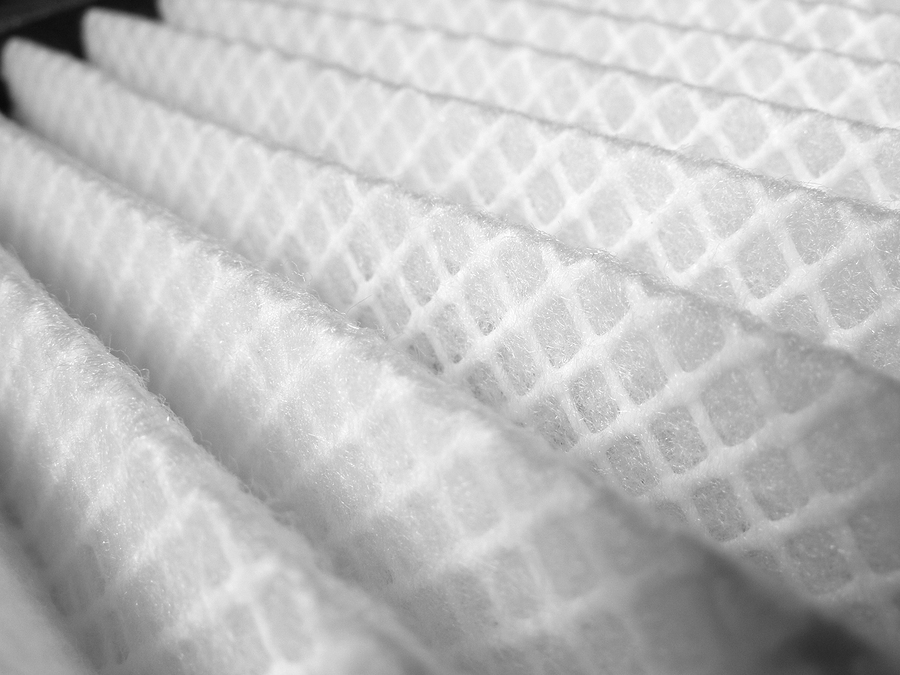

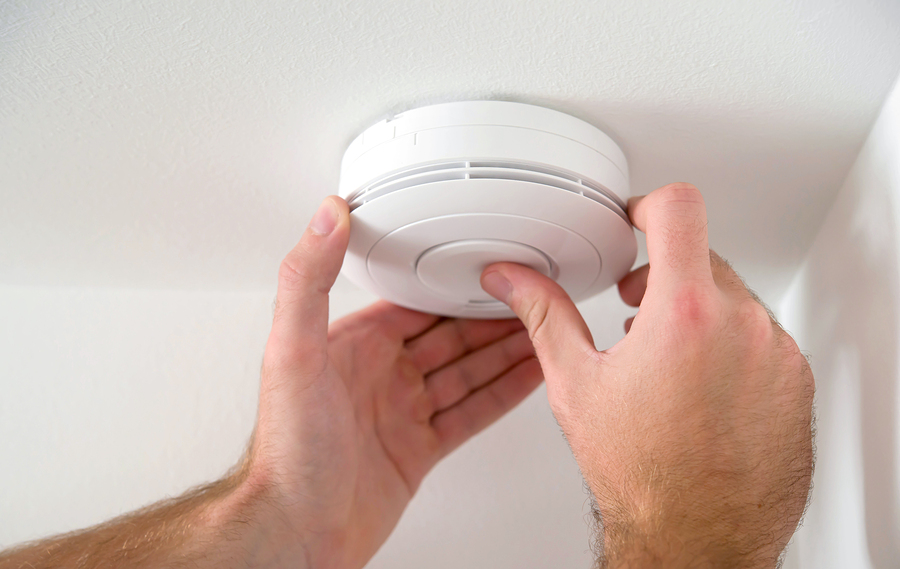

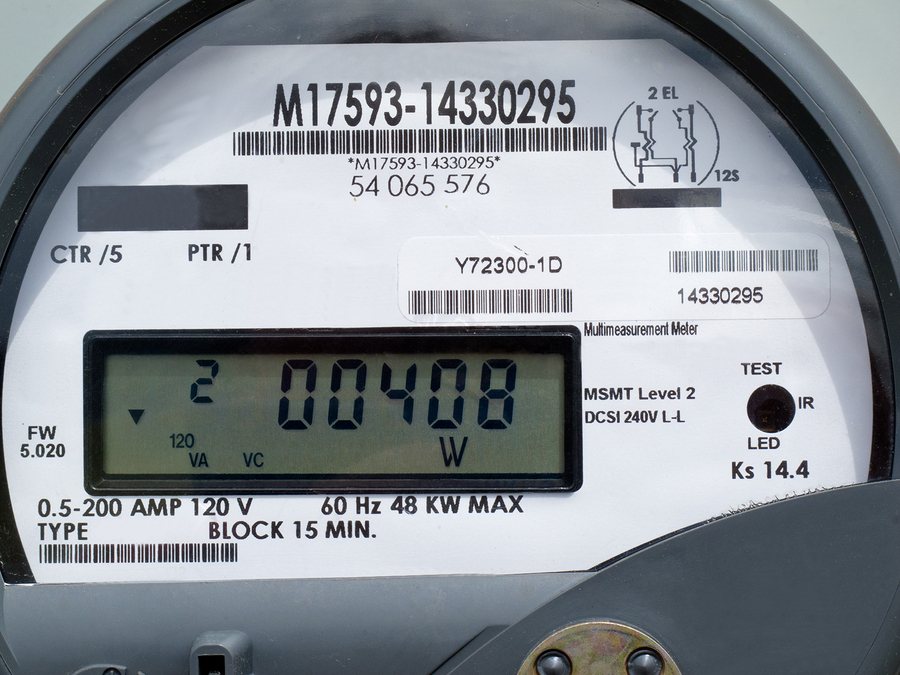

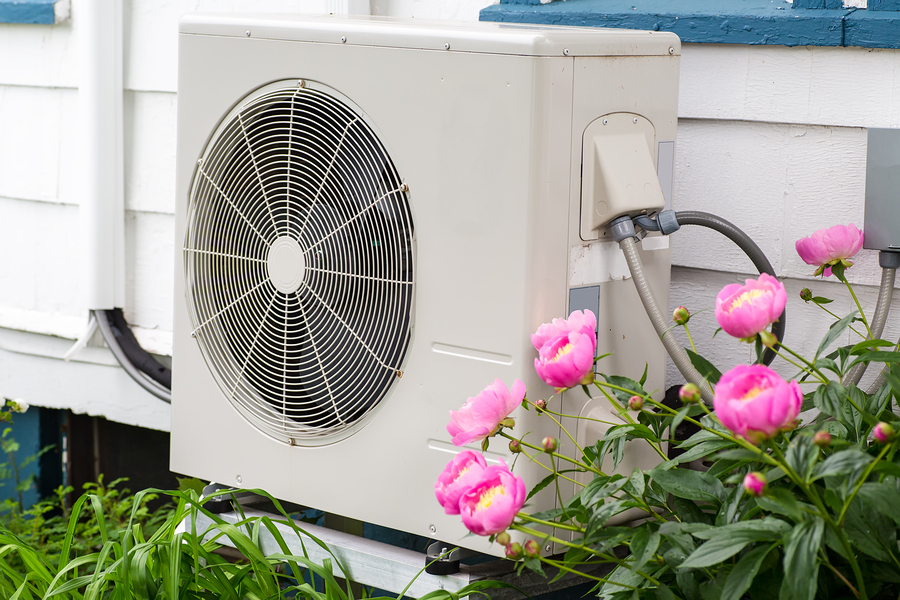

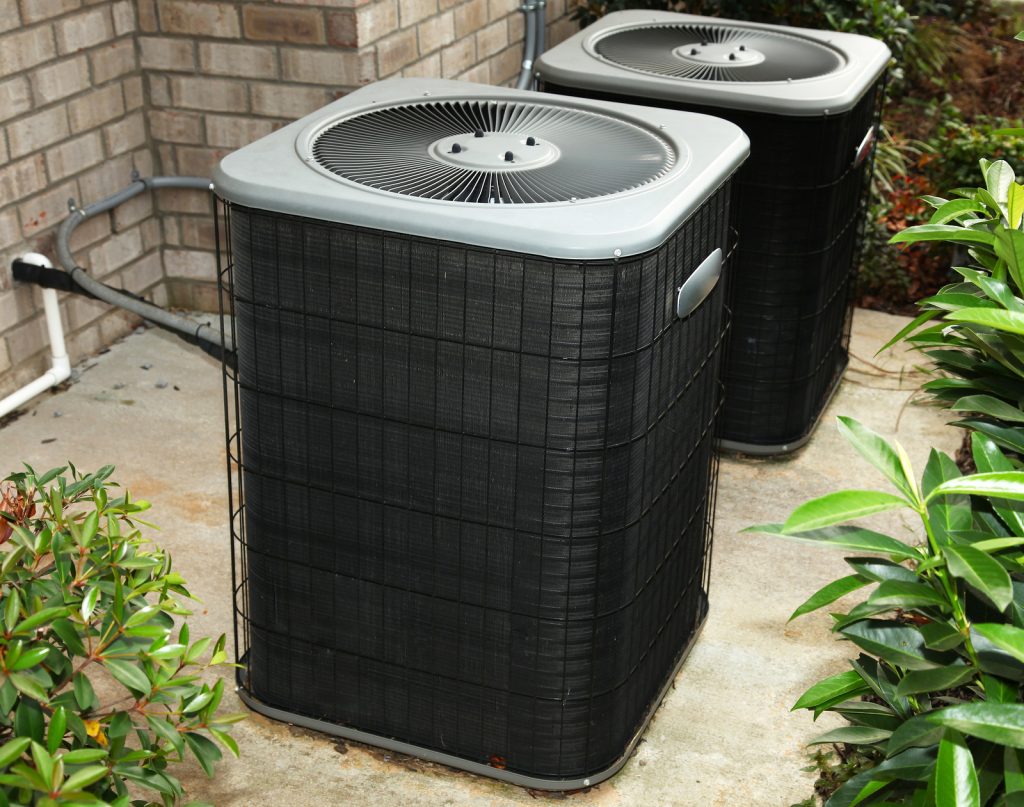

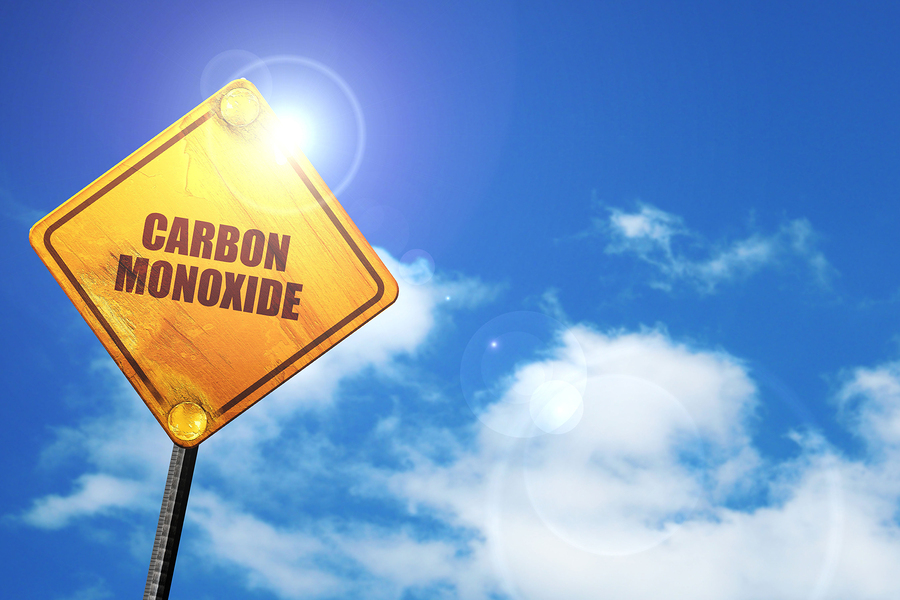

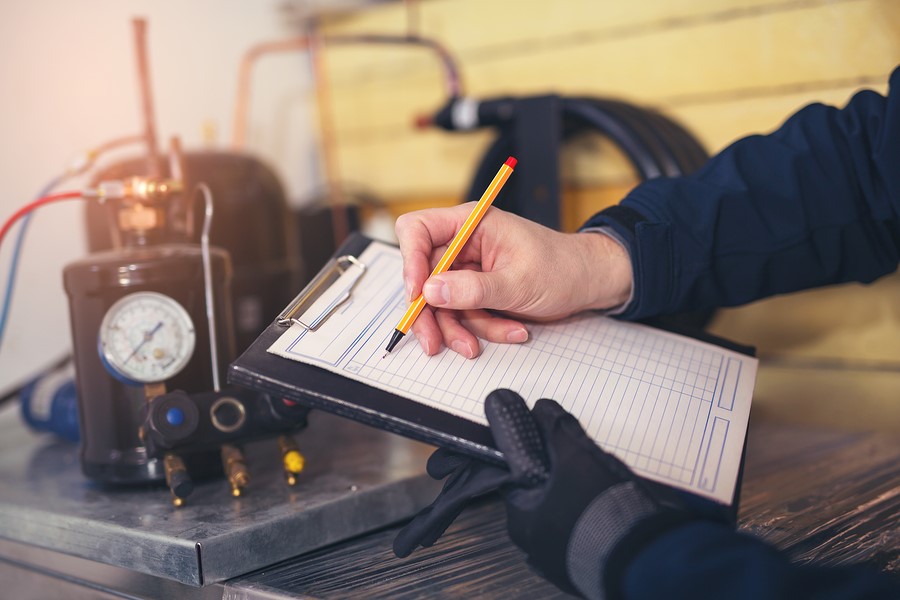

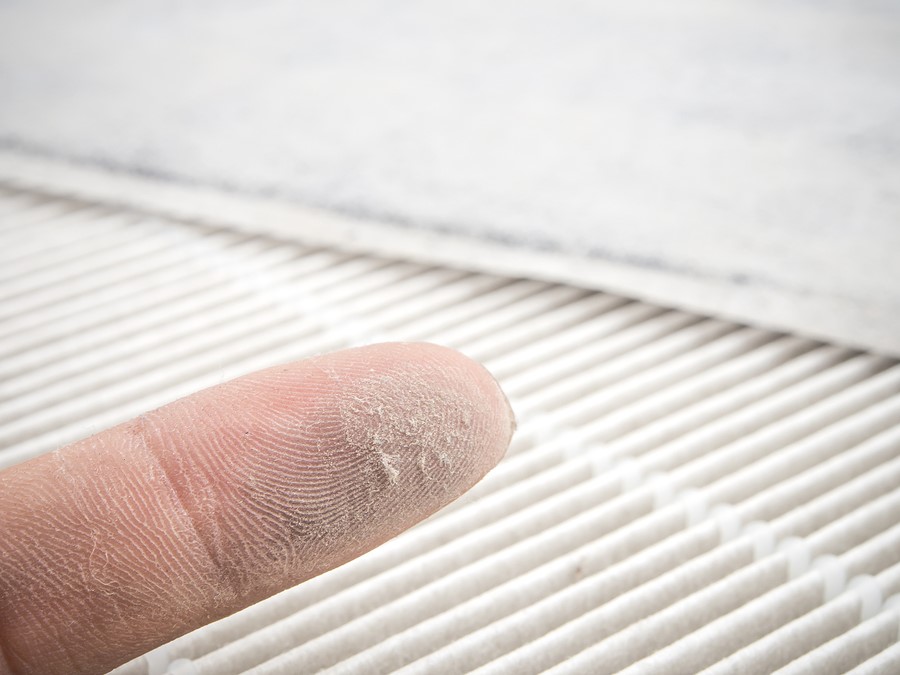





Recent Comments